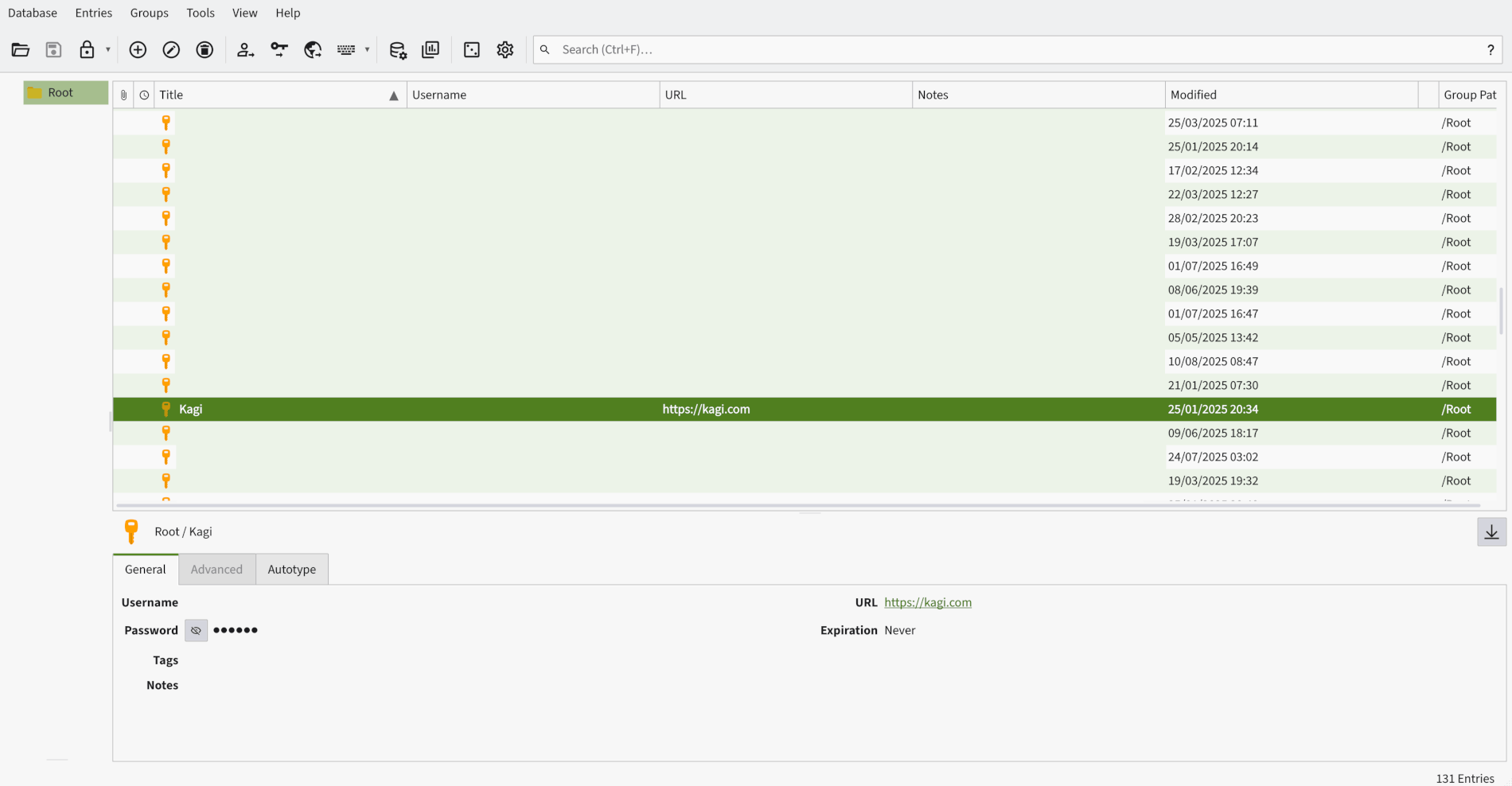Paying for KeePassXC
KeePassXC is a password management program. I’ve been using it since January, when LastPass randomly stopped working on Firefox. I realised that something was wrong when LastPass was hacked in late 2022, and it took two years for LastPass to become noticeably crap enough (partly due to software changes, and partly due to evolution of my software ethics) for me to switch.

After 8 months of use, I’m glad to say that I have no complaints. KeePassXC does precisely what it’s supposed to do.
The program doesn’t use the internet, which means I don’t have to worry about sudden and irreversable enshittification (e.g. through automatic updates) or cancellation (e.g. shutdown of a critical proprietary service). Because it’s open source, if the developers do take the software in a disagreeable direction then I can continue to use a version I like. If the software doesn’t quite work properly for me, then I can create my own modified version and share my changes with the project.
Part of the problem with the modern software industry is the business incentive to build scarcity into the digital medium. When I buy a material good from you, I give you money in exchange for possession of the item. I physically take the item away from you, and you’re left with the money I gave you. Software doesn’t work like this: when I buy software from you, I give you money in exchange for a copy of the software. Now we both possess the software (see also: “The Economy of Ideas” by John Perry Barlow). Now I can transmit my copy to someone else without them or me paying you, and so on. Businesses invent increasingly invasive and disempowering ways to capture as much of the value as possible that their software creates (e.g. DRM, SaaS).
KeePassXC has none of these artificial restrictions. We normally describe such software as “free”, as in, “you can legally obtain copies of this software without giving anything in exchange”. But until we can come up with a better economic system, I think it’s important to pay for good software, especially if it isn’t held for ransom. And until we have a better understanding of the economy of ideas, I’ll still talk about “buying” software as one would buy a material good. So how much should I pay for KeePassXC?
One reference point I have is the price of a cup of coffee, which around here is ~5AUD. I’m fortunate enough to be able to regularly buy coffee without concern for the price. If I bought a 5AUD coffee on 200 out of 365 days (a very conservative lower bound ☕☕☕), I would have spent 1000AUD on coffee in a single year. Since I’m willing to spend that amount on a drink, how much should I be willing to pay for a solid piece of software like KeePassXC, which I can use as much as I want without exhausting my supply? Honestly, my first reaction is that I should buy less coffee. That aside, KeePassXC is obviously worth more than a single coffee, because I can use it more than once (but I can only drink a particular coffee once). But it’s not worth 10,000 coffees because I could build it myself for less.
What about 100 coffees? That’s ~500AUD, which is only of what I might actually spend on coffee in a single year. Break it down as 100AUD or 20 coffees per year over 5 years (I’m very confident that I can use KeePassXC for 5+ years due to its anti-enshittification protections). That’s not a bad deal for a program as useful and reliable as KeePassXC, although for some reason it still feels a little steep.
In the end, the final number is not too important to me. I suspect there are too many ways that humans can be inconsistent when assigning numeric values to things. The main point is that the final number is not zero, because this software really is valuable.
You can buy KeePassXC here.